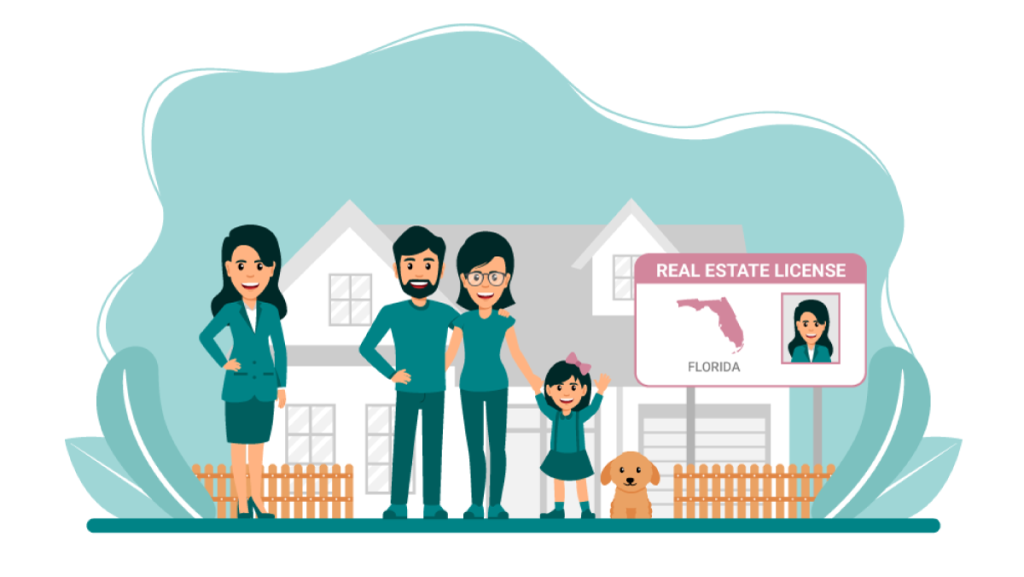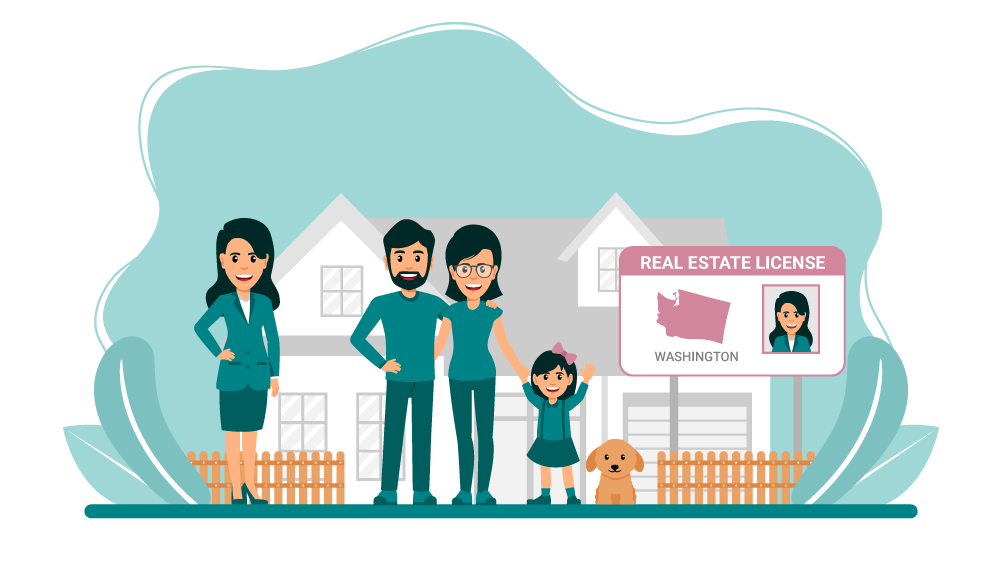While a real estate broker and a real estate agent both work in the same industry, they are not the same. Both are licensed and can help home buyers and home sellers. However, in most states, a broker can do more than an agent can.
When you become a real estate agent, you will be a salesperson. This designation gives you the legal ability to help buyers and sellers in a real estate transaction. It’s often the first licensed job anybody will have in real estate.
If you decide to go on to become a broker, you will need additional licensing. This licensing, in most states, comes with the ability to do more than just help buyers and sellers.
Before you decide whether you want to be a real estate broker or an agent, you should understand what both are and what they do. Let’s look at both and the differences between the two.

What is a Real Estate Agent?
A real estate agent is a salesperson, working for a real estate brokerage. They help oversee the purchase process for a home and/or the sales process for the home.
The main things you will do as an agent include helping buyers figure out their purchasing power for a home. You will walk people through the pre-approval process with lenders. Then, you will help buyers find homes in the neighborhoods and school districts they prefer.
Agents also spend quite a bit of time curating listings based on what a buyer wants and needs. It’s common for agents to show homes, as well. You might also hold open houses.
The Zillow Group Consumer Housing Report showed that 82% of all buyers used an agent during the home search process. More than half said the evaluation of the home from their agent was very or extremely important to them.
As a real estate agent, some of the other duties you may perform include:
- Submitting offers – After a buyer finds a home they love, you will submit t6he offer to the listing agent for them.
- Complete all the paperwork – A real estate transaction includes quite a bit of paperwork, which is handled by the agent.
- Negotiate – Agents will negotiate many parts of the transaction on behalf of the buyer or seller they represent.
- Make recommendations – Real estate agents can recommend attorneys, home inspectors, appraisers, and other professionals you may need.
- Help navigate the inspection and repair process – An agent can help buyers or sellers navigate the inspection process including any necessary repairs.
- Help with Closing – An agent will also help buyers and sellers get to the closing table without issue.
There are many duties a real estate agent can help with during a transaction. Your actual job duties, as an agent, will be determined by the type of agent you are, which may include:
- Listing Agent – Represent the seller
- Buyer’s Agent – Represent the buyer
- Transaction Agent – Oversees the timelines and paperwork for both parties during a real estate transaction.
- Dual Agent – Represents both the seller and the buyer. (Not allowed in all states)
What is a Real Estate Broker?
If you become a real estate broker, you will be licensed to do everything an agent can do, and more. along with negotiating and writing up transactions, you can also assist agents if they need help during any part of the transaction.
A real estate broker has a higher level of licensing. It will require more hours of study to become a real estate broker. You will have to pass more difficult exams, too.
Most home buyers and sellers will work with an agent. Often, brokers oversee a real estate brokerage and supervise real estate agents.
As a broker, you might be known as a broker associate, a managing broker, or a principal broker.
Real Estate Broker vs Agent: The Differences
The main differences between a real estate broker and an agent are found in the licensing and their duties. As an agent, you will need to complete the licensing requirements for your state to become a real estate agent. However, if you become a broker, you will go on to complete even more licensing requirements.
Every state is different, but if you want to become a real estate broker, you must complete additional coursework and pass additional exams. Agents will need to complete pre-licensing coursework and pass the national and state real estate licensing exam.
As an agent, you will be on the front lines helping buyers and sellers during a real estate transaction. Often, a broker will work behind-the-scenes helping agents with their transactions and offering support. They may also work in a managerial role. Sometimes, brokers will work directly with buyers and sellers, too.
How Real Estate Brokers and Agents Get Paid
Another difference between a broker and an agent is how they are paid. While both will be paid based on a commission structure, the way they are paid isn’t the same.
A broker will earn a percentage of the commission earned by any of the agents they sponsor. They may also be a flat-fee broker (allowed in some states) that charges a monthly fee for the agents they sponsored but doesn’t collect a commission on transactions.
Along with getting paid based on the agents sponsored by the broker, they also earn 100% of any commissions generated on their own deals.
A real estate agent, on the other hand, is paid 100% based on commissions, in most cases. The typical commission on any real estate transaction is between 5% and 6% of the purchase price. It’s often paid by the seller.
This commission will be split 50/50 between the buyer’s agent and the list agent. In some cases, when the home is listed for sale by owner, the buyer’s agent may be paid by the buyer and the commission might be negotiated ahead of time.
Out of the commission earned by the agent, a percentage will also go to their sponsoring broker.
If you’re considering a career in real estate, it’s important to consider whether you want to be an agent or a broker. You will likely need to start as a real estate agent before you can become a real estate broker, however.




